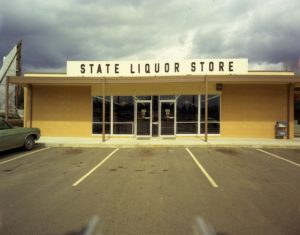Initiative Measure No. 1183 concerns liquor: beer, wine, and spirits (hard liquor).
This measure would close state liquor stores and sell their assets; license private parties to sell and distribute spirits; set license fees based on sales; regulate licensees; and change regulation of wine distribution.
For the last few years, Costco has sponsored initiatives to privatize liquors sales and distribution. I’m generally in favor of the idea, but have opposed the specific measures in the past, and I oppose I-1183 as well. But it won’t break my heart if it passes either.

Right now beer and wine can be sold in private retail stores in Washington. Hard liquor is sold only from restaurants, bars, and retail stores run by the Washington State Liquor Control Board. I believe the hard liquor monopoly is a remnant of prohibition. I-1183 directs the state to sell any assets related to liquor sales or distribution. In practice this will mean that the stores will be closed, because another item in the measure limits sales to stores with 10,000 square feet. In other words, grocery stores and big box discount stores.
The measure does not eliminate the three tier system for distribution though; we’ll still have producers, distributors, and retailers. But some companies will be allowed to be their own distributors, bypassing the middle man. That means places like Costco can sell liquor more cheaply. Which is something I’d be fine with, but it will probably freeze out small producers from the largest sales channel in the state. Right now they have a better opening into the distribution system. I don’t know where I come down on that. I’d like small producers to survive, but I don’t agree with doing it by monopoly power and price fixing.
I-1183 will raise revenues for the state, from $5 million to $8 million in 2012, and $35 million to $42 million in 2017, depending on assumptions. Local government revenues increase as well. These are the numbers the state came up with. The No On 1183 campaign likes to portray this as a tax increase and therefore bad. People don’t have to buy hard liquor, so it doesn’t bother me much.
Where my opposition comes though is that liquor will more or less only be sold in grocery stores. My ideal privatization measure would sell off the stores to be operated privately. Or allow private companies to open competing liquor stores. But spreading liquor sales into groceries worries me.
So my vote is a weak no.
Discover more from King Rat
Subscribe to get the latest posts sent to your email.